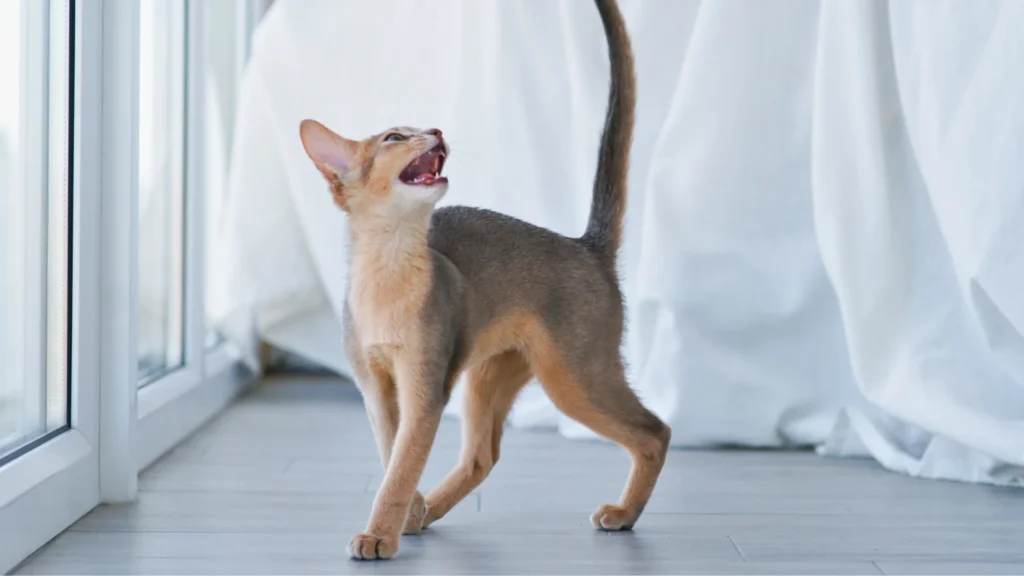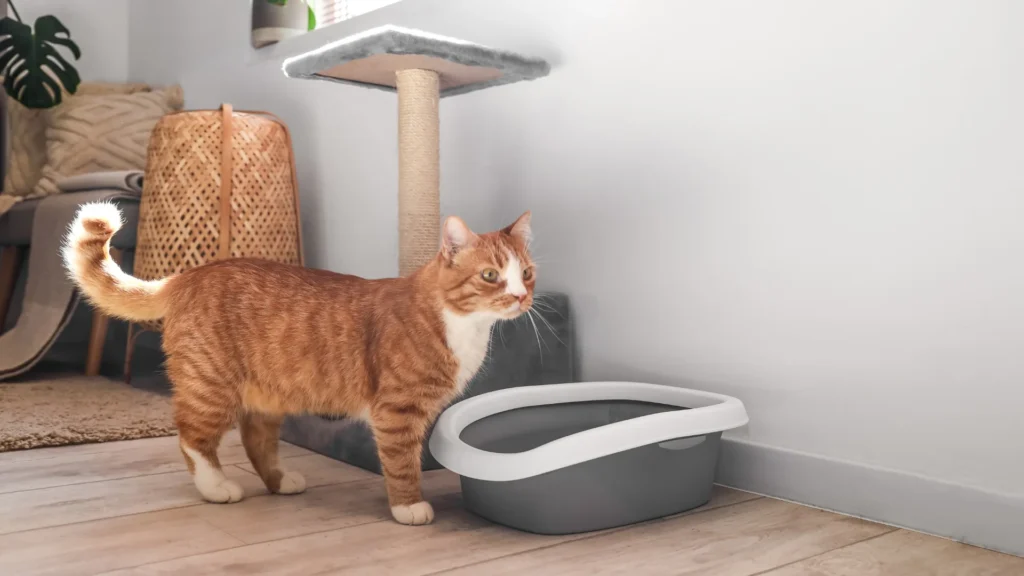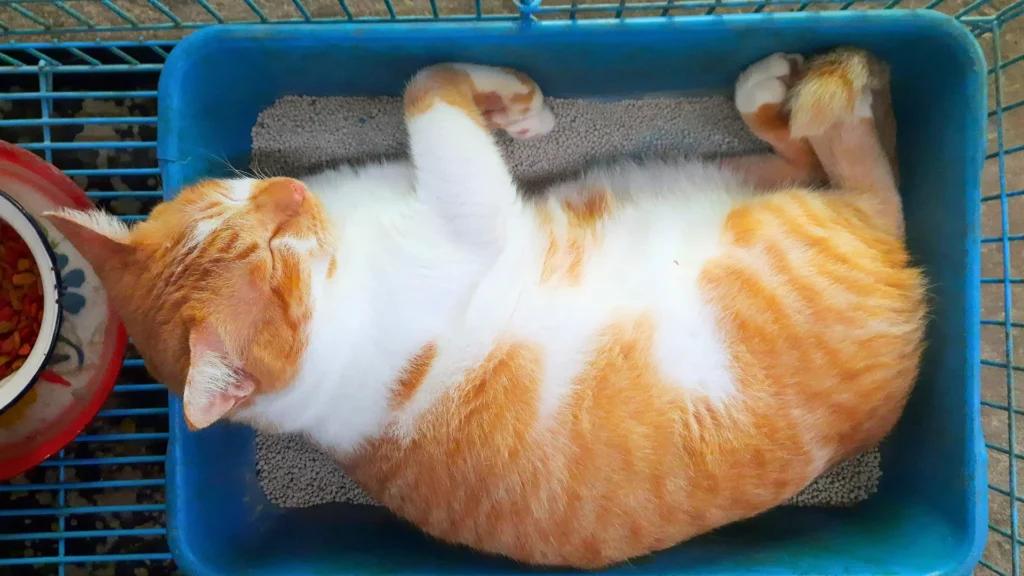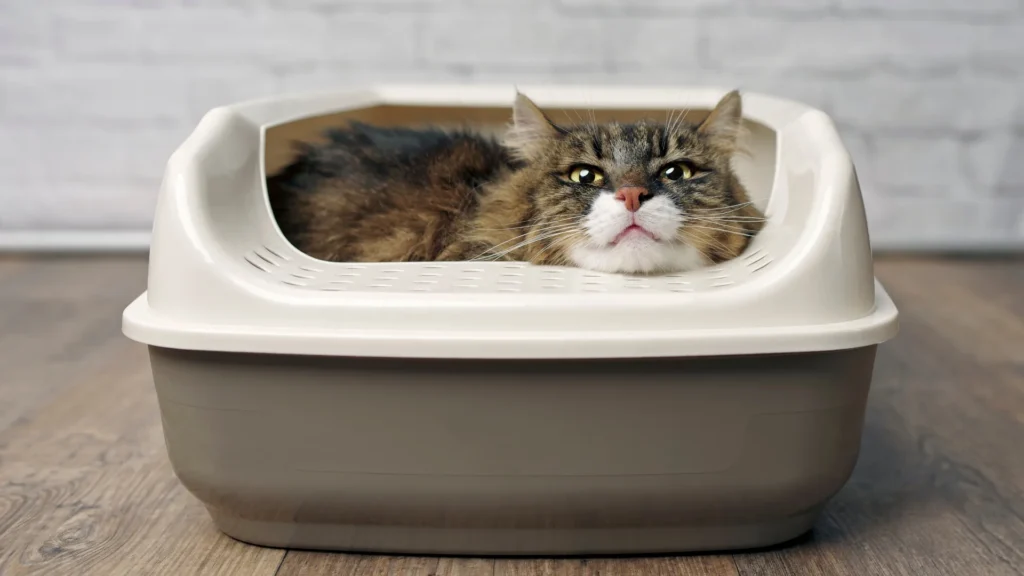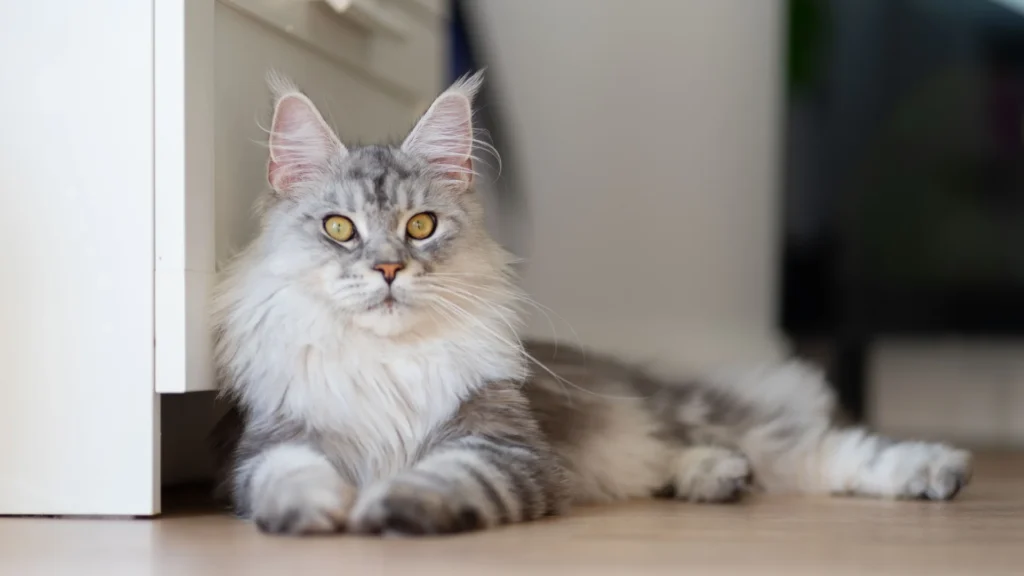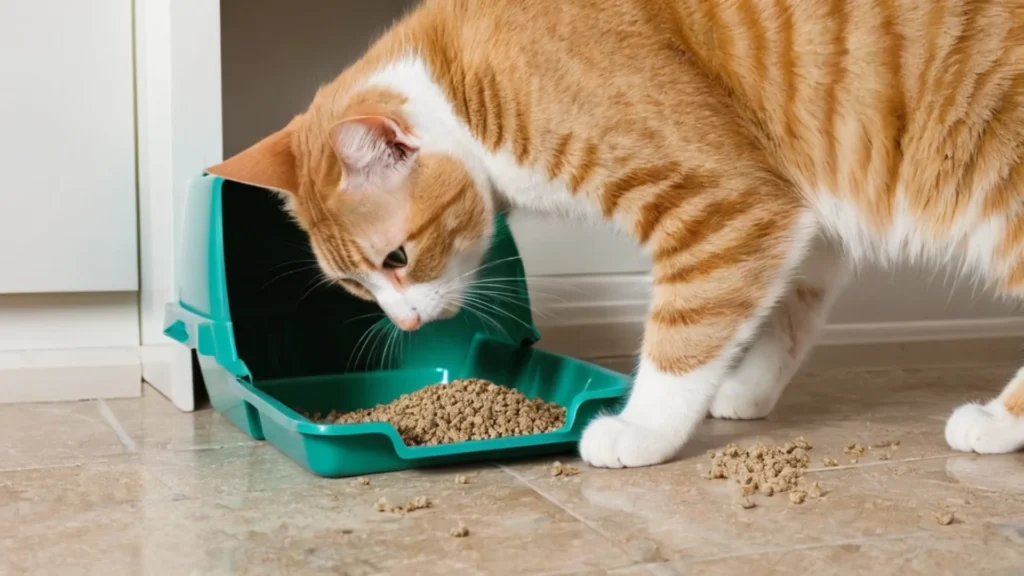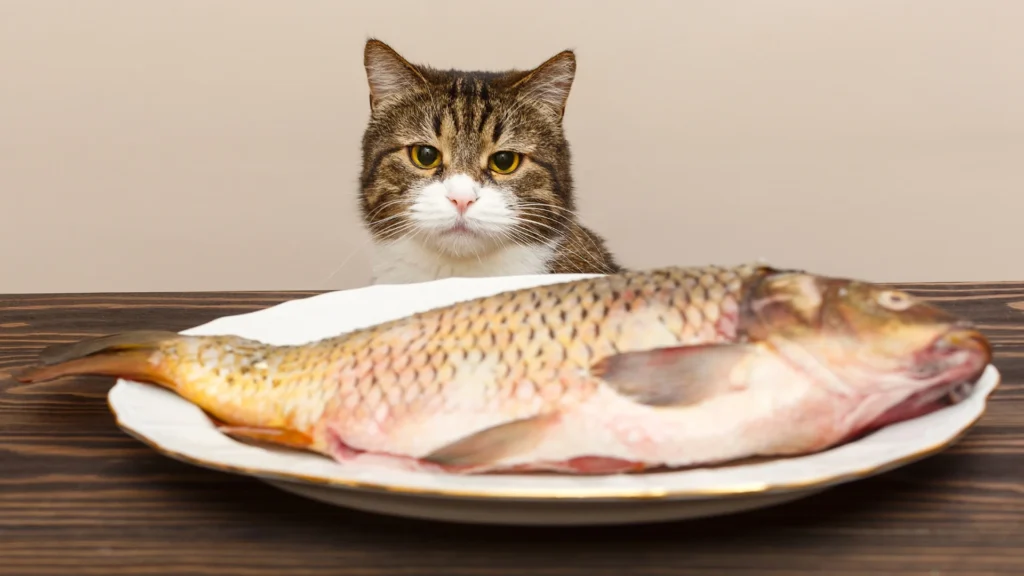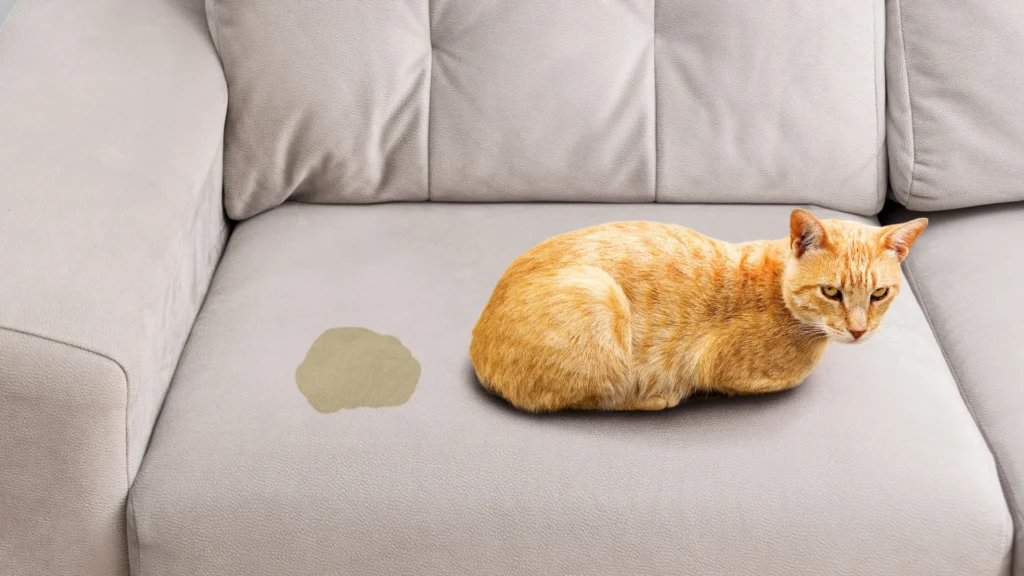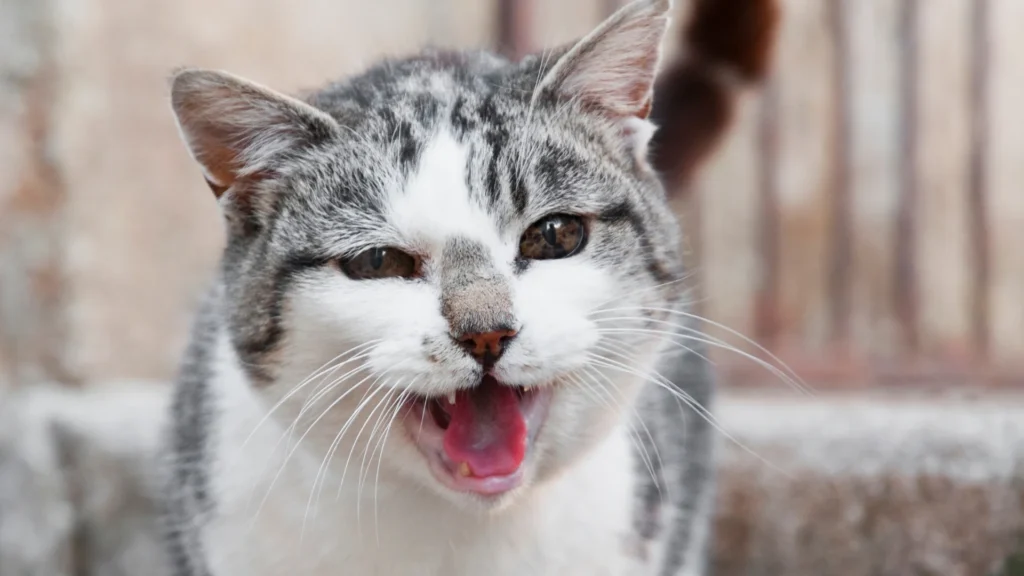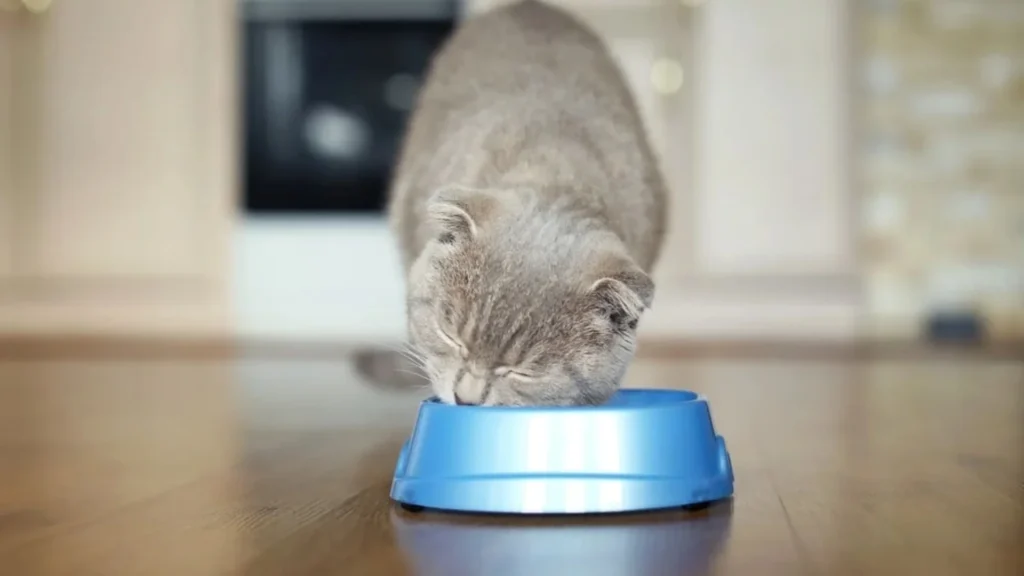Table of Contents
Cats are well-known for their mysterious attitude and strange modes of communication, such as their curious huffing behaviour. This behaviour, however, less well known than meowing or purring, provides a curious peek into the feline attitude.
Understanding the complex nature of cat behaviour is essential for pet owners because it helps them better interpret their demands and feelings. This article will shed light on the nature of cat huffing, including its causes and consequences for feline health and well-being.
What Does it Mean to Sigh in Cats?
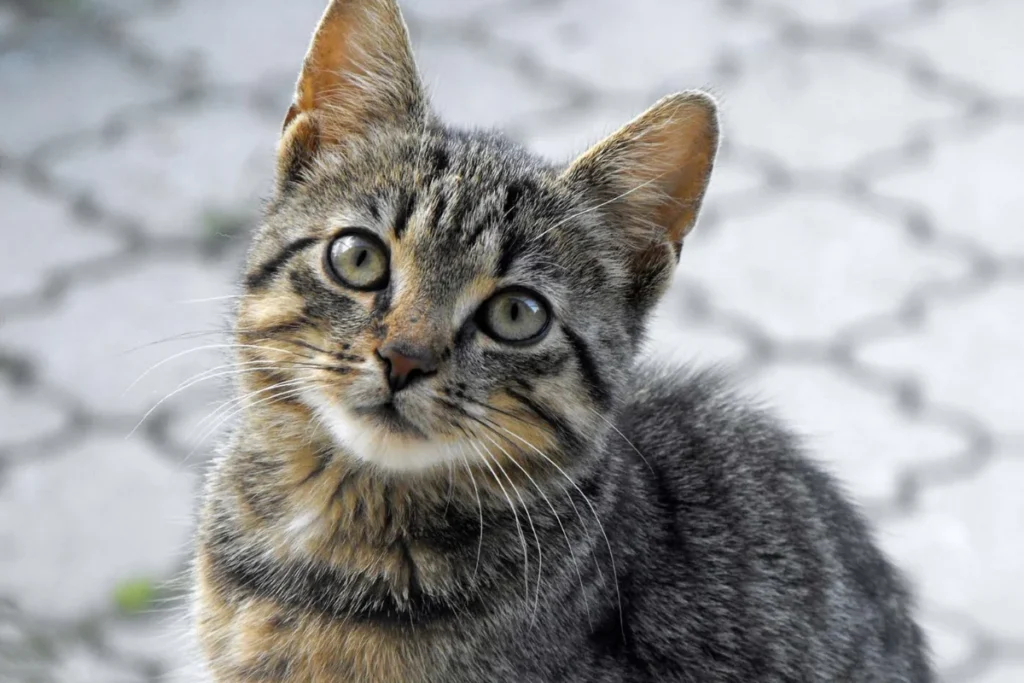
Sighing in cats is a behaviour that often goes unnoticed but holds significant meaning in understanding their emotional state.
Like more loud conversations such as meowing or purring, a cat’s sigh is a quiet expression that usually indicates great relaxation and satisfaction. When a cat sighs, it usually comprises a soft, lengthy exhalation, which is generally accompanied by a relaxed posture and a calm look.
This behaviour is most commonly observed in environments where the cat feels safe, secure, and comfortable. It can be seen after a fulfilling play session while basking in a sunny spot, or when they are curled up in their favourite resting place.
Physical Expression of a Cat's Sigh
The physical appearance of a sigh in cats is distinct. It normally starts with a deep inhale, followed by a calm and steady exhalation. During this process, you may notice a tiny relaxation in their body, with muscles loosening and the cat shifting into a more comfortable position.
Their eyes may be half or completely closed, signifying a sense of tranquillity. This is a cat’s approach of relieving stress and is frequently used as a prelude to falling asleep or resting more deeply. Observing your cat’s physical signs can be a reassuring sign that they are pleased and at ease in their current circumstances.
Comparison with Human Sighing
Drawing a comparison to human behaviour, a cat’s sigh is very similar to a human’s sigh of relief or contentment. In humans, sighing is a natural response to feelings of relief, happiness, or the release of stress, and it serves a similar emotional purpose in cats.
Just as humans sigh after a stressful event has passed or when relaxing, cats use sighing as a way to convey their feelings of ease and satisfaction.
The Multifaceted Reasons Behind Cat Huffing
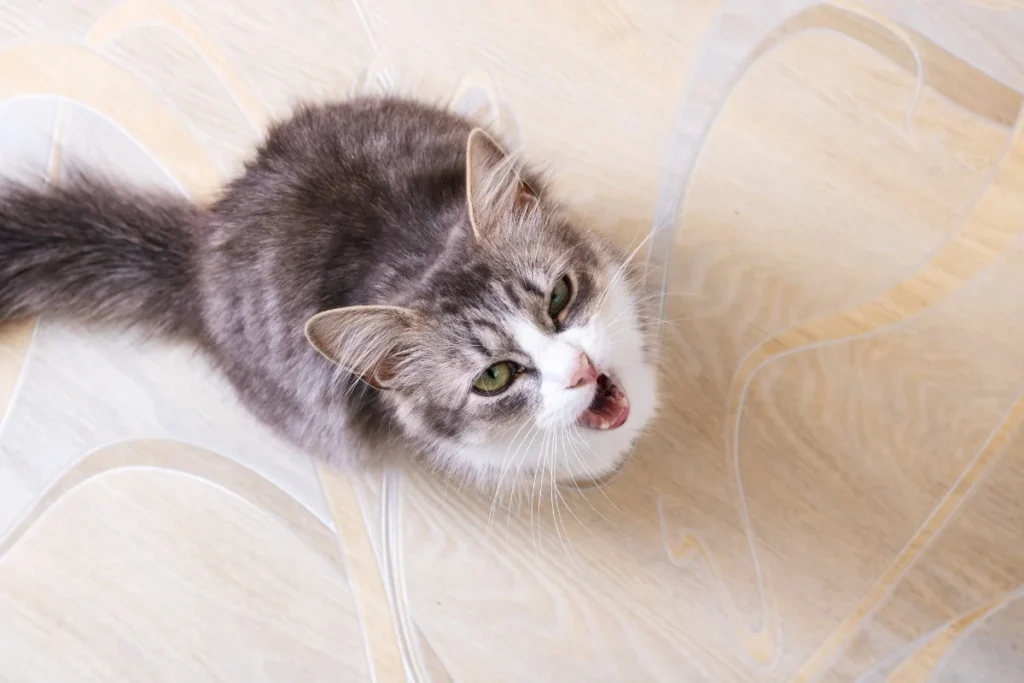
Cats, our interesting and enjoyed pets, frequently engage in behaviours that surprise us humans. One such fascinating behavior is cat huffing
Contentment and Relaxation
Have you ever noticed your feline friend gently exhaling a soft huff while lounging in their favourite sunbeam or curled up on your lap?
This subtle act is often a sign of contentment and relaxation. Much like a human sigh of relief, a contented cat’s huff is a way for them to release built-up tension and express a deep sense of satisfaction.
Expressing Frustration
On the flip side, cats may also resort to huffing as a means of expressing their frustration or annoyance. Just as humans might grumble or mutter when irritated, cats use huffing as a non-verbal communication tool to convey their displeasure.
Common Triggering Situations
Various events might cause frustration in cats, resulting in puffing attacks. These include interactions with other aggressive cats, prison time, unexpected changes in their surroundings, and even being denied access to a desired location or object.
Understanding these potential triggers might help cat owners better meet their pets’ needs.
Individuality in Reactions
It’s important to recognize that each cat has a unique personality, and their reactions to frustration can vary significantly. Some cats may be more vocal and prone to huffing, while others may resort to different behaviours like hissing or swatting when they are annoyed.
Recognizing these individual differences can aid in better understanding and managing feline emotions.
The Fatigue Factor
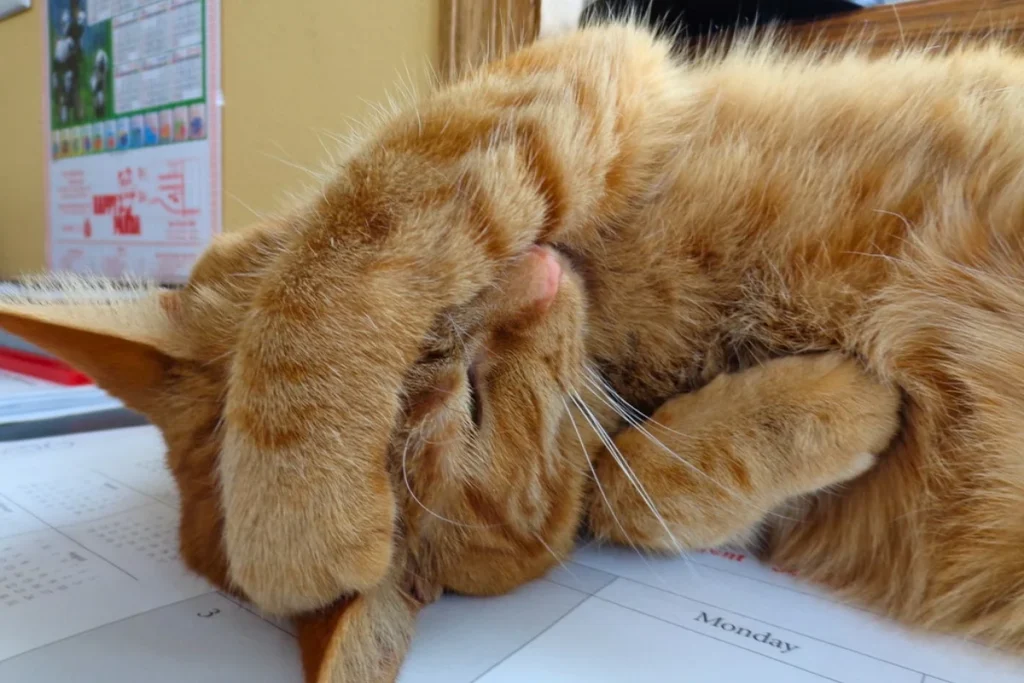
The Connection Between Cat Huffing and Tiredness
After an active play session, you might notice your cat emit a single, gentle huff. This is often a sign of fatigue, similar to a human taking a deep breath after strenuous physical activity.
Playtime can be exhilarating for cats, and a gentle huff can indicate their need for a moment of rest.
Encouraging Awareness of Breathing Sounds
Cat owners should be alert to strange breathing sounds. While a gentle huff after fun is usually natural, prolonged or labored breathing should not be overlooked. Such sounds may suggest underlying health issues and require rapid veterinary intervention.
Signs of Stress
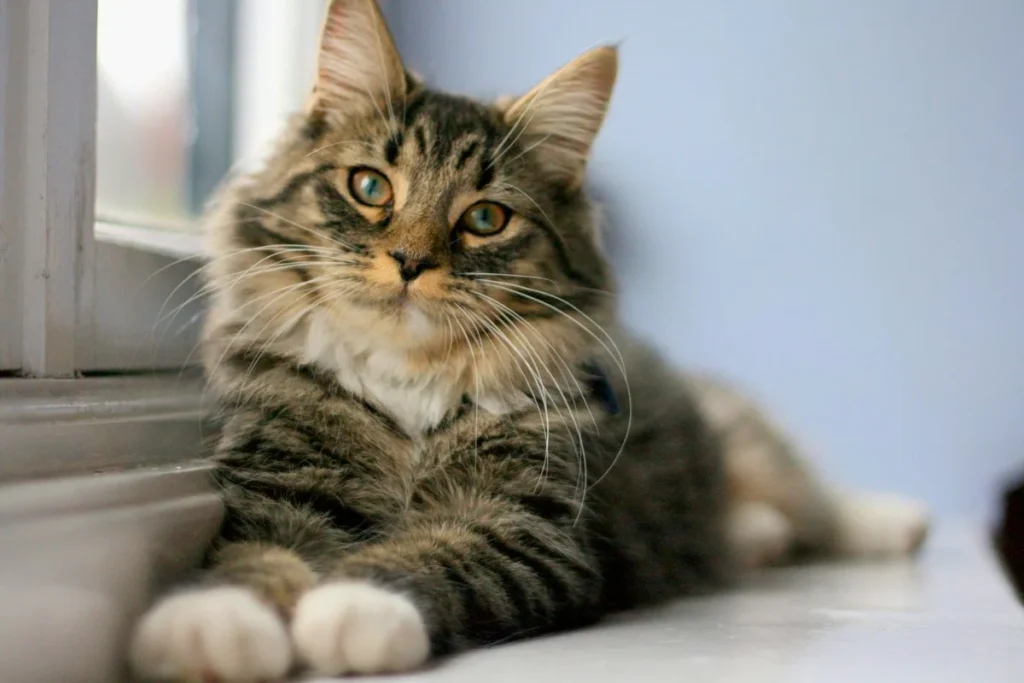
Cats can express stress in a variety of ways, including puffing. Along with puffing, cats may display excessive grooming, hiding, loss of appetite, or hostility. Identifying and eliminating stresses in a cat’s surroundings is critical to their general health.
As responsible cat owners, we must provide a pleasant and stress-free environment for our feline pets. This entails creating secure environments and routines, as well as minimizing changes that could disrupt their sense of security. Understanding what causes stress in your cat and taking actions to alleviate these issues can greatly enhance their quality of life.
Hints of Pain
Frequent or loud huffing from a cat can also be an indication of pain or discomfort. Cats are experts at hiding their pain, making it challenging for owners to detect underlying issues. Vigilant observation of your cat for changes in behaviour, appetite, or mobility is crucial for the early identification of potential health problems.
Respiratory Illnesses
Respiratory illness can be a reason for your cat’s frequent sighing. Conditions like asthma or infections can cause laboured breathing, leading to more pronounced sighs.
If you notice your cat sighing excessively, especially if accompanied by wheezing, coughing, or nasal discharge, it’s crucial to consult a veterinarian promptly. Early diagnosis and treatment are essential to manage respiratory issues and ensure your cat’s well-being.
Recognizing When Cat Huffing Requires Attention
While cat huffing is a common and sometimes harmless behavior, cat owners must be able to tell the difference between occasional, benign huffing and situations when it may indicate underlying difficulties. Understanding when cat huffing demands care is critical to maintaining your kitty companion’s health and pleasure.
First and foremost, it’s essential to recognize that occasional huffing is generally not a cause for immediate concern. Cats, like humans, can have moments when they express themselves through soft exhalations without any underlying issues.
These occasional huffs can be related to contentment, relaxation, or mild frustration and are a normal part of feline behavior. When assessing your cat’s huffing, context is key.
A cat’s overall well-being should always be taken into account. A contented cat lounging in a sunbeam and emitting an occasional huff is typically nothing to worry about. However, if your cat’s huffing becomes frequent, and loud, or appears to be accompanied by other concerning symptoms, it’s time to take action.
Consulting a Veterinarian is Crucial
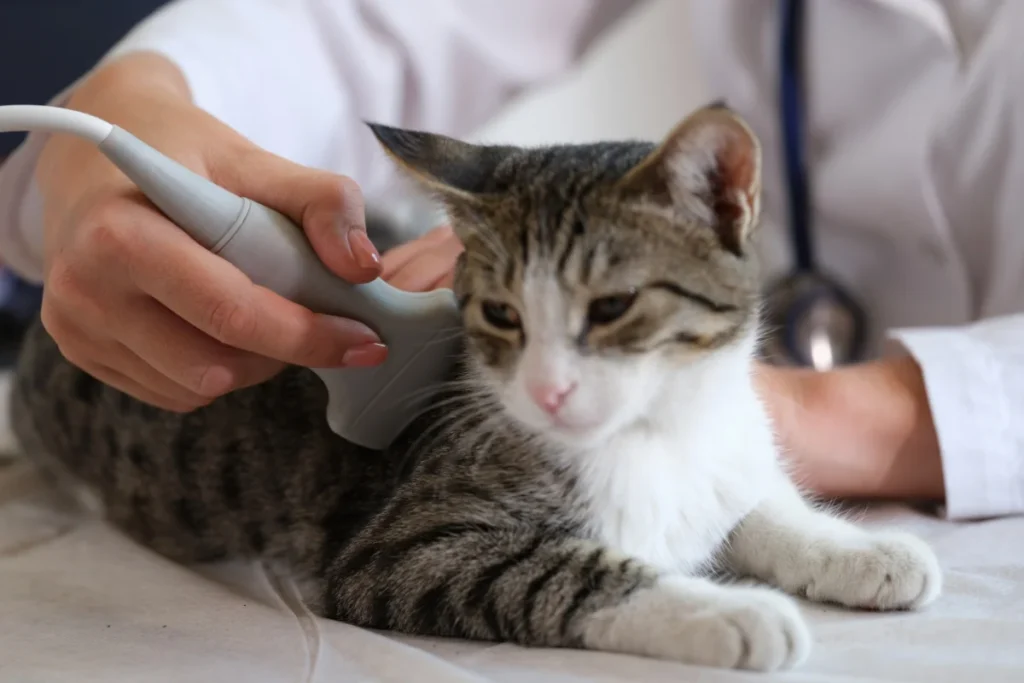
If you notice any of the following signs in conjunction with cat huffing, it’s essential to consult a veterinarian without delay:
Frequent Huffing:
If your cat is huffing excessively and consistently, it may be an indication of an underlying issue that requires medical attention. Frequent huffing can be a sign of respiratory distress or discomfort.
Breathing Difficulties:
If your cat’s huffing is accompanied by laboured breathing, wheezing, or coughing, it could signify a respiratory problem. These issues should not be ignored, as they can be indicative of a more severe condition.
Behavioural Changes:
Cats are creatures of habit, and sudden behavioural changes can be a red flag. If your cat’s huffing is associated with alterations in appetite, energy levels, or social interactions, it’s a sign that something might be amiss.
Frequently Asked Question
Frequent cat sighing can indicate contentment and relaxation in their environment. However, if it becomes excessive or is accompanied by other concerning signs, consult a veterinarian.
After play sessions, a cat’s huff is often a sign of fatigue, similar to a human taking a deep breath after exertion. It’s usually normal but watch for any unusual breathing sounds.
Yes, cats may sigh when stressed. Alongside huffing, look for signs like excessive grooming, hiding, or aggression, and create a calm and stress-free living environment for your cat.
Be concerned if your cat’s huffing is frequent, loud, or accompanied by laboured breathing, coughing, or behavioural changes. These could signal underlying health issues and require prompt veterinary attention.
Conclusion
Understanding your cat’s subtle language, including sighs and huffs, is vital for responsible pet ownership. These behaviours offer insights into their emotions, from contentment to potential health issues.
While occasional huffing is usually harmless and reflects relaxation, any changes should be noted. Consult a vet if you have concerns. Fostering this understanding strengthens your bond with your cat, ensuring their well-being and happiness. If you’re curious about feline behavior, you might wonder, ‘Why are orange cats so dumb?‘”

